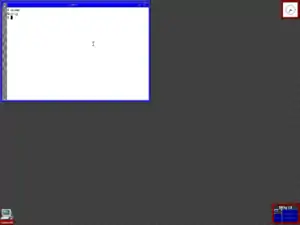Bitrig
Bitrig was an OpenBSD-based operating system targeted exclusively at the amd64 and armv7 platforms.
 | |
 Default Bitrig desktop | |
| Developer | Artur Grabowski, Patrick Wildt, Christiano F. Haesbaert, John C. Vernaleo, Pedro Martelletto, Martin Natano, Owain G. Ainsworth, Thordur Bjornsson,[1] Dale Rahn, Marco Peereboom, Christophe Prevotaux |
|---|---|
| OS family | BSD |
| Working state | Discontinued |
| Source model | Open source |
| Initial release | 1.0 / 25 November 2014 |
| Latest release | 1.0 / 25 November 2014 |
| Package manager | Bitrig ports/packages |
| Platforms | amd64, armv7 |
| Kernel type | Monolithic kernel |
| License | ISC license |
| Official website | www |
It is no longer being developed, and some of the work that it had done was merged back into OpenBSD.[2] Some of its achievements included porting FUSE/puffs support, libc++ to the platform to replace libstdc++, PIE support for AMD64 and NDB kernel support.[2]
Bitrig focused on using modern tools such as Git and LLVM/Clang along with only focusing on modern platforms.
It aimed to have a "commercially friendly code base",[3] with texinfo being the only GNU tool in the base system.[4] GPT partitioning was supported by Bitrig,[5] and future plans included support for virtualisation and EFI.[6]
References
- "People - Bitrig", Github, 2015.
- "Bitrig: The Short-Lived OpenBSD Fork", Michael Larabel, Phoronix, 30 July 2017.
- "Faq - Bitrig", Github, 7 December 2014.
- "Bitrig 1.0 Key Features", Bitrig, 2014.
- "Episode 067: Must be Rigged" Archived 2014-12-27 at the Wayback Machine, bsdnow.tv, 10 December 2014.
- "OpenBSD-Forked Bitrig Finally Sees Its Initial Release", Phoronix Media, 4 December 2014.
This article is issued from Wikipedia. The text is licensed under Creative Commons - Attribution - Sharealike. Additional terms may apply for the media files.
